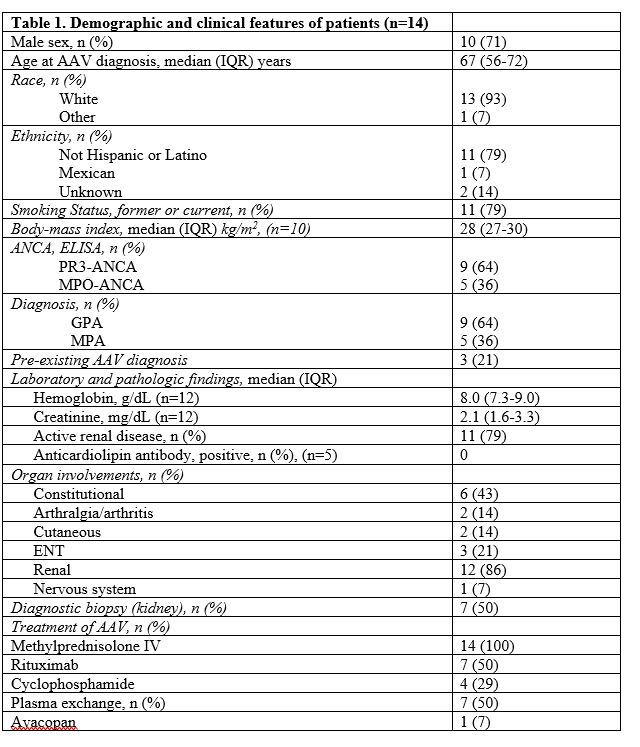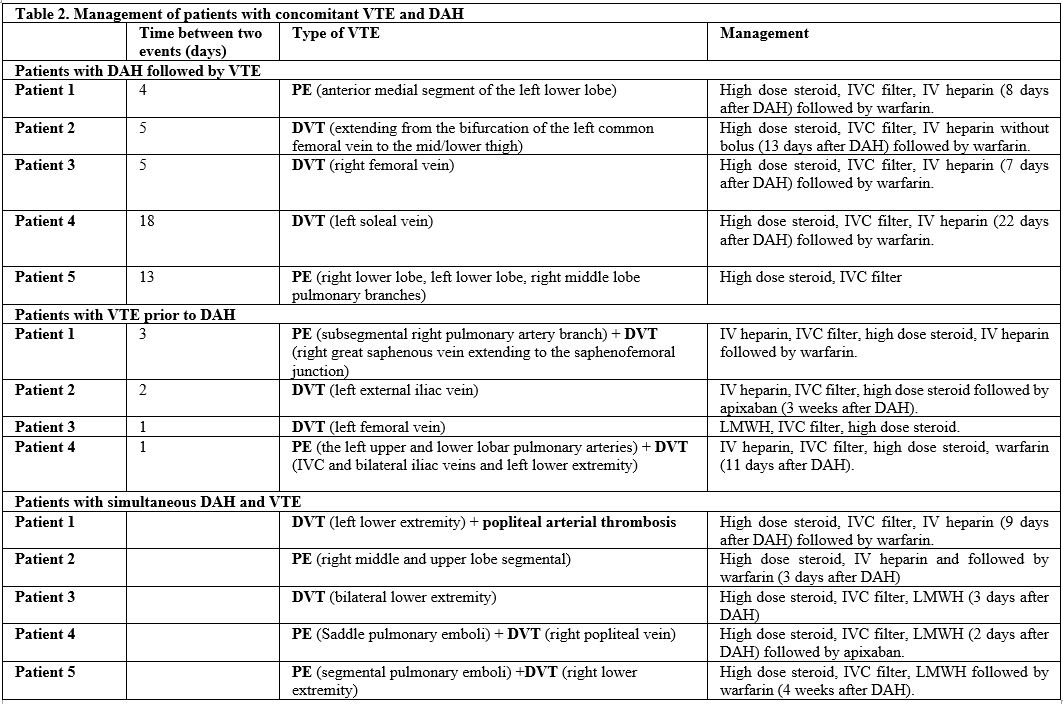Session Information
Session Type: Poster Session A
Session Time: 10:30AM-12:30PM
Background/Purpose: Diffuse alveolar hemorrhage (DAH) is an acutely life-threating presentation of ANCA-associated vasculitis (AAV), and patients with AAV are at increased risk of venous thromboembolic events (VTE) at the time of active disease. We aimed to identify the clinical characteristics, management, and prognosis of patients with AAV and concurrent DAH and VTE.
Methods: This is a retrospective observational study. Patients diagnosed with AAV between 1997 and 2023 at Mayo Clinic who had a documented diagnosis of VTE (by radiologic reports) and concurrent DAH (diagnosed based on pathologic, bronchoscopic and/or radiologic reports) were included in the study.
Results: Fourteen patients presenting with DAH and VTE treated at Mayo Clinic were included. Patients were predominantly male (71%) with median age (IQR) at diagnosis of 67 (56-72). Nine patients (64%) had PR3-ANCA and 5 (36%) had MPO-ANCA. Five patients were diagnosed with DAH followed by VTE, 4 patients were diagnosed with VTE before developing DAH, and 5 patients were diagnosed with VTE and DAH simultaneously. IVC filters were placed in 13 patients (93%). All patients received anticoagulation adapted according to the clinical situation. One patient who had pre-existing interstitial lung disease died of respiratory failure after presenting with pulmonary embolism and subsequently developing DAH during the hospitalization. Six patients (43%) developed major bleeding (DAH or retroperitoneal hematoma) and three (21%) developed progression or recurrence of VTE within 90 days.
Conclusion: In patients with AAV, clinicians should follow guidelines for routine prevention of VTE and have a low index of suspicion for VTE in patients presenting with compatible symptoms. Management of patients with DAH and VTE is challenging, and early IVC filter placement may facilitate management of these patients. Further therapies should be guided should be guided by the severity of DAH, additional organ manifestations of AAV, and risk stratification of the presenting VTE.
To cite this abstract in AMA style:
Ediboglu E, Falde S, Baqir M, Cartin-Ceba R, McBane R, Specks U. Therapeutic Dilemmas in Patients with ANCA-associated Vasculitis: Diffuse Alveolar Hemorrhage, Venous Thromboembolism and Anticoagulation [abstract]. Arthritis Rheumatol. 2024; 76 (suppl 9). https://acrabstracts.org/abstract/therapeutic-dilemmas-in-patients-with-anca-associated-vasculitis-diffuse-alveolar-hemorrhage-venous-thromboembolism-and-anticoagulation/. Accessed .« Back to ACR Convergence 2024
ACR Meeting Abstracts - https://acrabstracts.org/abstract/therapeutic-dilemmas-in-patients-with-anca-associated-vasculitis-diffuse-alveolar-hemorrhage-venous-thromboembolism-and-anticoagulation/


